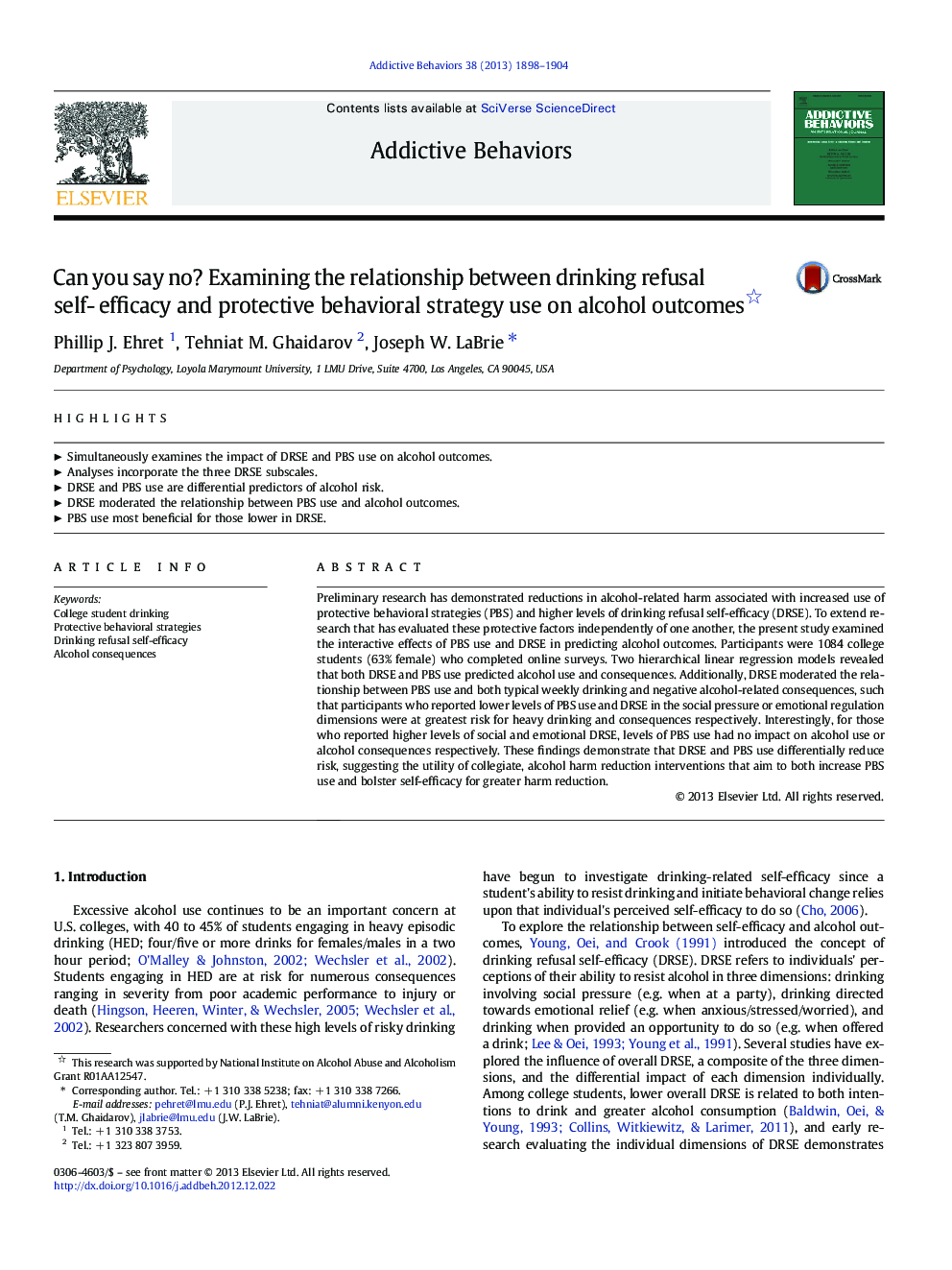| Article ID | Journal | Published Year | Pages | File Type |
|---|---|---|---|---|
| 898883 | Addictive Behaviors | 2013 | 7 Pages |
Preliminary research has demonstrated reductions in alcohol-related harm associated with increased use of protective behavioral strategies (PBS) and higher levels of drinking refusal self-efficacy (DRSE). To extend research that has evaluated these protective factors independently of one another, the present study examined the interactive effects of PBS use and DRSE in predicting alcohol outcomes. Participants were 1084 college students (63% female) who completed online surveys. Two hierarchical linear regression models revealed that both DRSE and PBS use predicted alcohol use and consequences. Additionally, DRSE moderated the relationship between PBS use and both typical weekly drinking and negative alcohol-related consequences, such that participants who reported lower levels of PBS use and DRSE in the social pressure or emotional regulation dimensions were at greatest risk for heavy drinking and consequences respectively. Interestingly, for those who reported higher levels of social and emotional DRSE, levels of PBS use had no impact on alcohol use or alcohol consequences respectively. These findings demonstrate that DRSE and PBS use differentially reduce risk, suggesting the utility of collegiate, alcohol harm reduction interventions that aim to both increase PBS use and bolster self-efficacy for greater harm reduction.
► Simultaneously examines the impact of DRSE and PBS use on alcohol outcomes. ► Analyses incorporate the three DRSE subscales. ► DRSE and PBS use are differential predictors of alcohol risk. ► DRSE moderated the relationship between PBS use and alcohol outcomes. ► PBS use most beneficial for those lower in DRSE.
